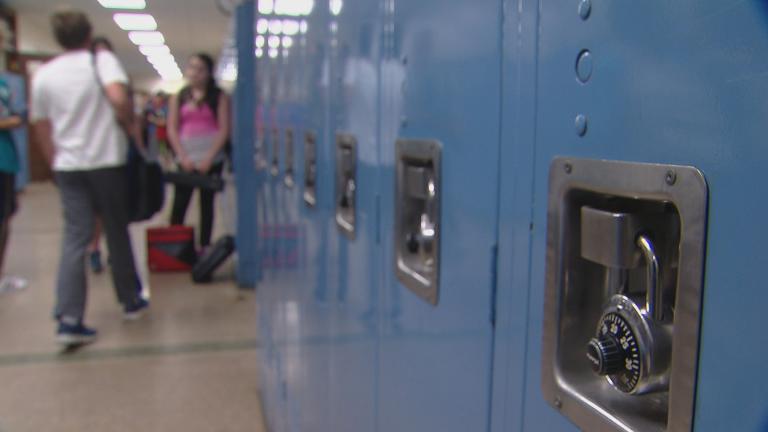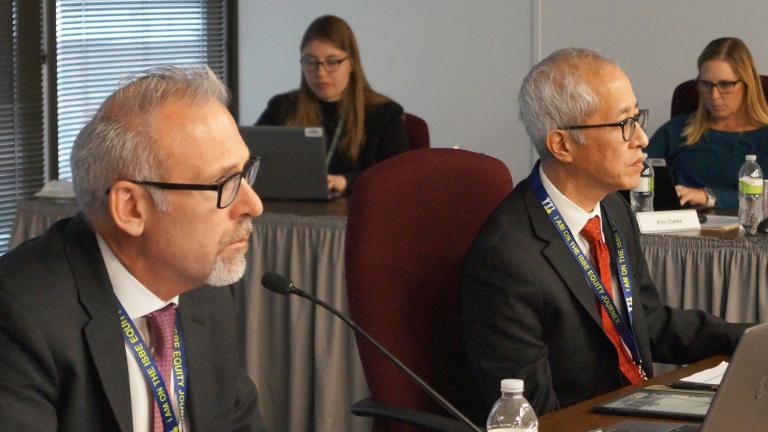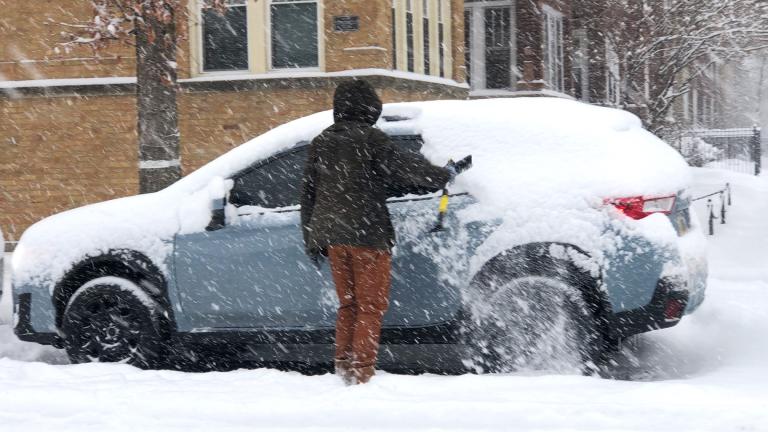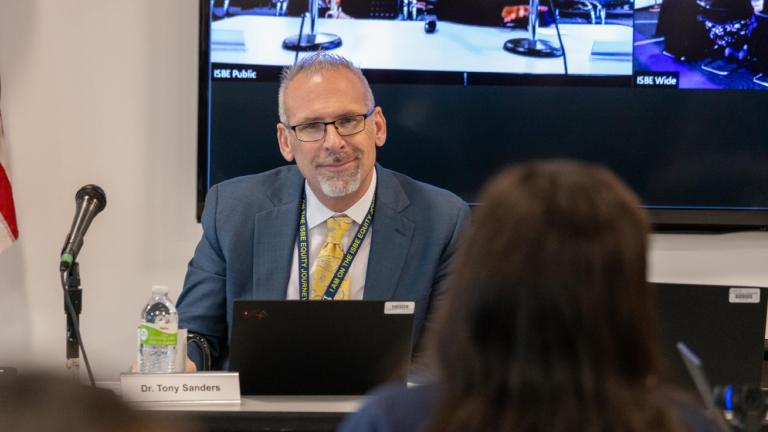The Illinois State Board of Education is in the process of rewriting rules for timeouts and physical restraints for schoolchildren across the state. The action comes after a report last month revealed tens of thousands of cases in which schools placed children in locked seclusion.
The state quickly moved to ban locked isolation rooms after that joint investigation from the Chicago Tribune and ProPublica Illinois came out, but some schools and families say that was a knee-jerk reaction, and the decision is affecting their children and students.
For example, Fox Lake parent Suzanne Mitchell says her 18-year-old son Joey has severe autism. He’s nonverbal, cannot use the bathroom by himself and travels almost 90 minutes each way to get to Giant Steps, his school in Lisle. She says her family really values the care that he gets at that school.
Rather than subject Joey to camera crews, which might upset him, Mitchell shared some home videos of Joey with WTTW News.
She says when Joey does get upset, he can’t verbalize what’s wrong, but he can become aggressive and needs a space to himself.
“I have gymnastics mats in his bedroom for him to be able to bang on and get it out. That’s what he craves, that’s his sensory issue when he’s upset, he needs to bang. He elbows and he kicks and does all kinds of things. It centers him,” she said. “I am a bit of a mama bear, and if there was anything about this dangerous to my child, you can guarantee there is no way anyone would have ever been allowed to do it.”
For that reason, Mitchell says she trusts her son’s school to use those timeout spaces when necessary.
When we visited Giant Steps, we found it had several timeout spaces for students (these rooms were, until recently, called isolated timeout rooms).
The rooms are about 10 by 15 feet and about 8.5 feet high. There’s a large rectangular window staff can use to keep an eye on the student inside and a security mirror in the corner to show all the angles of the room.
The staff at Giant Steps says these rooms have been extremely useful when they’re needed, but that’s only for about 15% of their students, all of whom are on the autism spectrum.
They say the state’s new rules requiring an adult to be in the room with the student makes managing a student in crisis more challenging.
“[It is] challenging and a little confusing for some of our students,” said Jen Brown, the school’s secondary and transition senior program supervisor. “We’ve taught them that once they’re in this space, they can have that space to themselves. They can have privacy and access their calming routine and their coping strategies. ... Now we’re saying, ‘You can do all those things, except for someone’s going to stay in here with you.’ So, it does create some unsafe situations, where a student might continue to be physically aggressive to adults in the room.”
The temporary ban on isolation rooms will expire in April. Meanwhile, the public comment period for proposed permanent rules is open.
Under those, timeouts can only occur when there is a clear safety threat and other methods have been tried – and not as a form of punishment.
The door must remain unlocked, and a trained adult must be with the student.
The rules also ban the use of supine restraints except in emergencies.
The rules also clarify requirements for annual training and parent notification after any use of timeout or restraint.
“I can certainly understand where a child emotionally needs a quiet space, to be able to calm down and de-escalation strategies to be used with that child,” said Dr. Carmen Ayala, the Illinois State Board of Education superintendent. “But to simply put a child in a timeout situation because they’re not following rules, or complying immediately with a request, that’s completely inappropriate.”
The state association representing special education administrators says while the investigation clearly highlighted some gross misuse and overuse of timeout rooms, some schools are in a tough position because they do work with kids that have a high level of need during a time in which special education staff and resources are strapped.
The Illinois Alliance of Administrators of Special Education President Kevin Rubenstein says the organization is working with members to address those problems, but also advocate for what students and staff need.
In addition to the new rules, there is legislation in both houses of the General Assembly that would ban isolation rooms – and Tuesday, both the Senate and House education committees announced a joint hearing on this subject in Chicago in early January.
Follow Brandis Friedman on Twitter @BrandisFriedman
Related stories:
State Board of Education Calls for End to Student Isolation Following Investigation
A $50 Gift for Every Illinois Baby, Courtesy of Taxpayers
Lawsuit: ‘Deliberate Indifference’ of Board of Education Allowed Sexual Assault
New PBS Documentary ‘College Behind Bars’ Explores Elite Education Program








